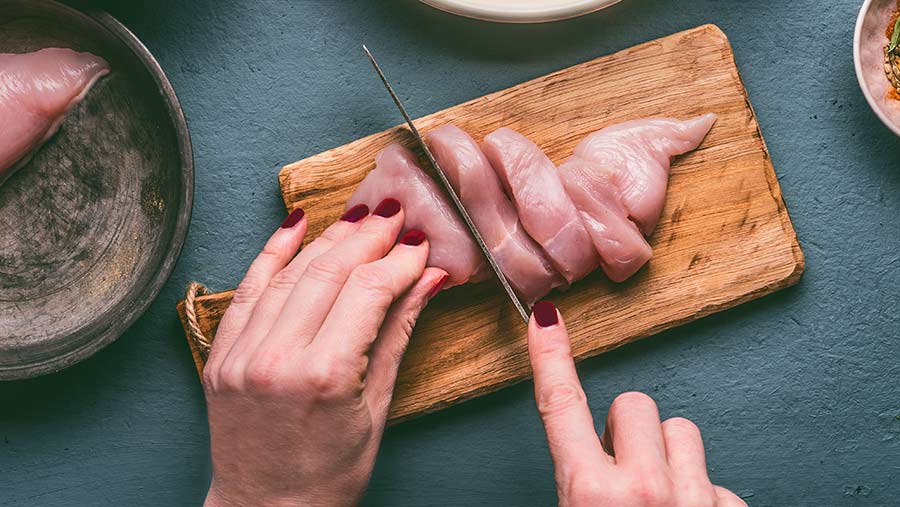Poll: Should we take chlorinated chicken in a US trade deal?
 © Ingram Image
© Ingram Image The issue of chlorinated chicken will be on the agenda during post-Brexit trade talks between the US and the UK, it has emerged.
Meat processors in the US wash chicken in chlorine to kill bacteria. But the practice has been banned in the EU – and hence the UK – since 1997.
See also: US farmers demand UK accepts its beef and chicken
Defra secretary Michael Gove has pledged that UK food standards will be maintained after Brexit – but the US says people should be able to eat chlorinated chicken if they wish.
Speaking on the BBC’s The Andrew Marr Show, US ambassador to the UK Woody Johnson said the issue would be on the table for a UK-US trade deal.
Consumer choice
Mr Johnson said: “If they like it, they can buy it. If they don’t want it, they don’t have to buy it.”
The US argues that chlorinated chicken is safe to eat – but critics say the practice is only necessary because of poor hygiene and animal welfare standards.
Timed to coincide with Donald Trump’s state visit to the UK, chlorinated chicken will be the subject of Channel 4’s Dispatches programme at 8pm on Monday (3 June).
The programme will feature undercover footage from a US chicken processing plant.
Welfare standards
NFU president Minette Batters is among those who have suggested chlorinated chicken masks the issue of lower welfare standards on American farms.
“Put simply, some US food would be illegal to produce here,” she said.
“British farmers do not rely on chlorine-wash to ensure their chicken is safe to eat, nor do they feed growth hormones to their cattle, pigs or dairy cows.”
In the US, there were “hardly any welfare laws for laying hens, with no federal laws on housing, which are in stark contrast to the UK’s advanced rules on laying hen welfare,” said Ms Batters.
Legal requirements
US farmers could undermine UK farmers on price by using products and methods which had been banned in the UK as early as the 1980s, she added.
“That’s not a criticism of US farmers but a statement of fact about the different legal requirements facing farmers in the UK,” said Ms Batters.
“British farmers are quite reasonably expected to meet the values of the British public when it comes to how our food is produced.
“Those values must not be sacrificed in pursuit of hurried trade deals.”
